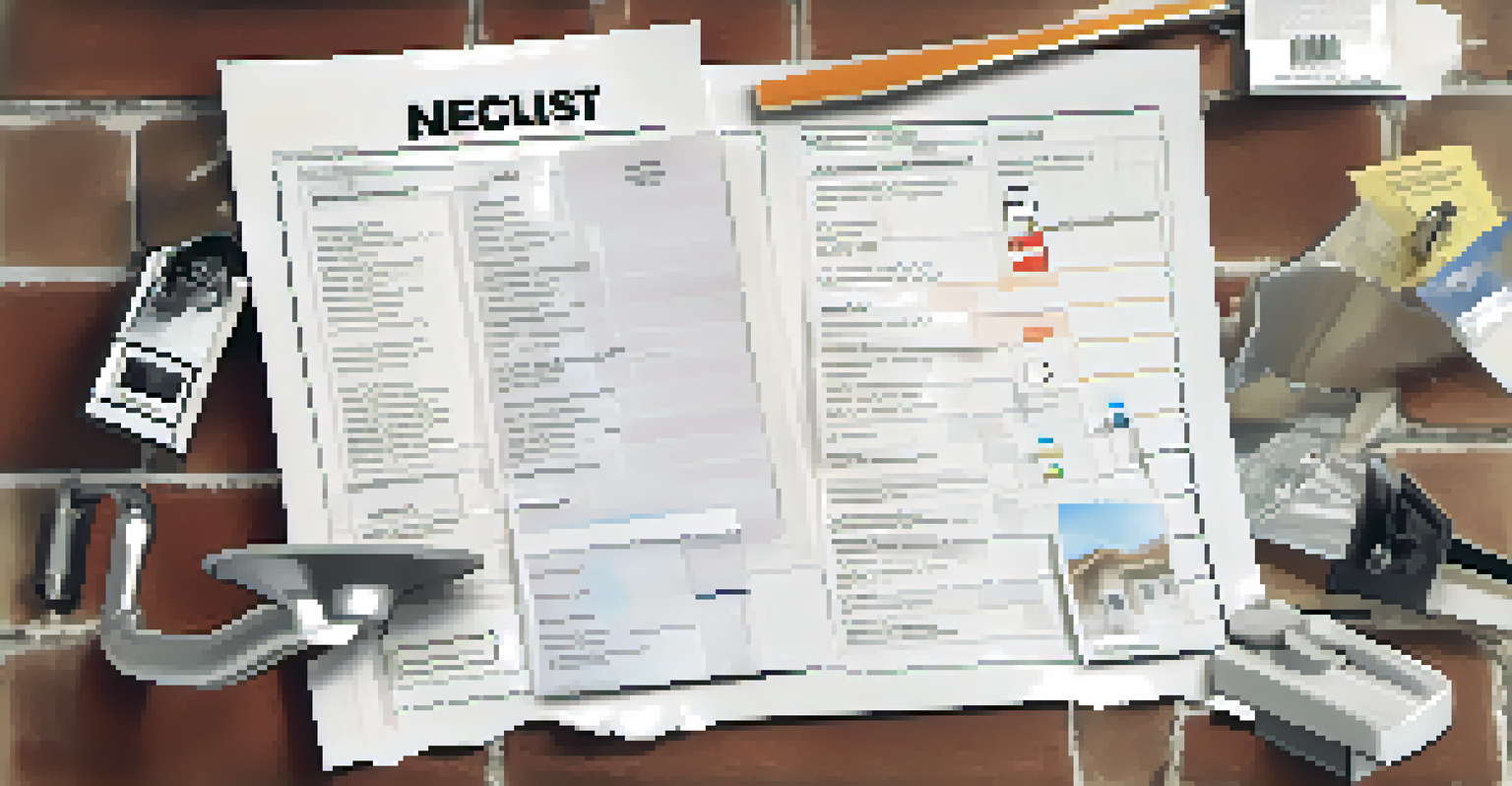The Impact of Home Inspection Contingencies in Offers

What Are Home Inspection Contingencies in Real Estate?
Home inspection contingencies are clauses in a real estate offer that allow buyers to have a property inspected before finalizing the purchase. Essentially, these contingencies protect buyers from unexpected issues that may arise after they've made an offer. If significant problems are discovered during the inspection, buyers can negotiate repairs, request a price reduction, or even back out of the deal altogether.
An investment in knowledge always pays the best interest.
Think of it like a safety net. Just as a parachute ensures a safe landing, home inspection contingencies provide buyers with peace of mind. They ensure that buyers are not left holding the bag for costly repairs that could have been identified before closing the deal.
In today’s competitive market, these contingencies are essential for buyers who want to make informed decisions. Without them, buyers might plunge into a purchase without knowing the full condition of the home, potentially leading to future headaches.
Why Buyers Should Include Inspection Contingencies
Including an inspection contingency in your offer is crucial for protecting your investment. It allows you to uncover underlying issues such as structural damage, plumbing problems, or electrical failures that might not be visible during a casual walkthrough. Ignoring this step could lead to financial strain down the line when these problems become apparent.

Imagine buying a used car without a mechanic's inspection; you might end up with a lemon. Similarly, a home without an inspection might hide significant issues that could cost thousands to repair. By insisting on an inspection contingency, buyers can ensure they are making a wise investment.
Importance of Inspection Contingencies
Home inspection contingencies protect buyers by allowing them to identify potential issues before finalizing a purchase.
Furthermore, the presence of this contingency can also give you leverage during negotiations. If the inspector uncovers major issues, you can negotiate with the seller to fix them or adjust the sale price to reflect the necessary repairs.
How Sellers Can Prepare for Inspection Contingencies
Sellers can also benefit from understanding home inspection contingencies, as they can take proactive steps to prepare their property. By addressing common issues before listing, such as leaky faucets or cracked tiles, sellers can minimize the chances of red flags during an inspection. This preparation can lead to a smoother transaction and potentially a quicker sale.
The best way to predict the future is to create it.
It’s like sprucing up your home before a party; a little effort can go a long way in impressing your guests. Similarly, by ensuring your home is in good condition, sellers can create a more favorable impression on potential buyers.
Moreover, being aware of common inspection findings can help sellers set realistic expectations. Knowing what to expect from an inspection enables sellers to either make necessary repairs upfront or prepare for negotiations after the inspection.
Common Issues Found During Home Inspections
Home inspections often reveal a variety of issues that can range from minor to major concerns. Common findings include roof damage, faulty wiring, outdated plumbing, or pest infestations. Understanding these common issues can help both buyers and sellers approach negotiations with a clearer perspective.
For example, a worn roof may not seem urgent at first glance, but it can lead to significant water damage if not addressed. Recognizing these potential problems allows buyers to make informed decisions about whether to proceed with the purchase or negotiate repairs.
Sellers Should Prepare for Inspections
Sellers can enhance their chances of a smooth transaction by addressing common issues before the inspection.
Sellers, on the other hand, can focus their efforts on these common issues before listing their home. By being proactive, they can potentially avoid last-minute negotiations and foster a smoother selling process.
The Role of the Home Inspector in the Process
Home inspectors play a crucial role in the real estate transaction process, serving as an unbiased third-party assessment of a property's condition. Their expertise can help identify issues that the average buyer or seller might overlook. This objective viewpoint is invaluable in ensuring both parties understand the home's true condition.
Think of home inspectors as detectives; they are trained to uncover hidden problems that may not be immediately visible. Their thorough evaluation can provide buyers with the information they need to make informed decisions about their purchase.
A good inspector will not only highlight issues but also provide recommendations for repairs or maintenance. This information is essential for buyers who want to make informed choices and for sellers who wish to present a well-maintained property.
Negotiating After an Inspection: What to Expect
Once the inspection is complete, negotiations often commence based on the findings. Buyers may request repairs, a reduction in the sale price, or even a credit towards closing costs. This is a critical moment in the buying process, as it can make or break the deal.
Imagine you're at a car dealership; if the car has a few dents, you might negotiate a lower price. Similarly, after an inspection, buyers can leverage the findings to secure a better deal on the home. This negotiation process is a normal part of real estate transactions and should be approached with clear communication.
Negotiation Power Post-Inspection
After an inspection, buyers can leverage findings to negotiate repairs or price adjustments, impacting the overall deal.
Sellers, on their part, need to be prepared for these negotiations. Being open to discussions about repairs or price adjustments can help facilitate a smoother transaction and foster goodwill between both parties.
Final Thoughts on Home Inspection Contingencies
In conclusion, home inspection contingencies are a vital aspect of the real estate buying process. They provide a safety net for buyers and can lead to a more transparent transaction overall. Sellers who understand these contingencies are better equipped to prepare their homes and negotiate effectively.
Just like a well-prepared athlete has a better chance of winning, a well-prepared home can lead to a successful sale. By recognizing the importance of these contingencies, both buyers and sellers can navigate the real estate landscape with confidence.

Ultimately, taking the time to understand and utilize home inspection contingencies can save buyers from future headaches and ensure sellers present their homes in the best light possible.